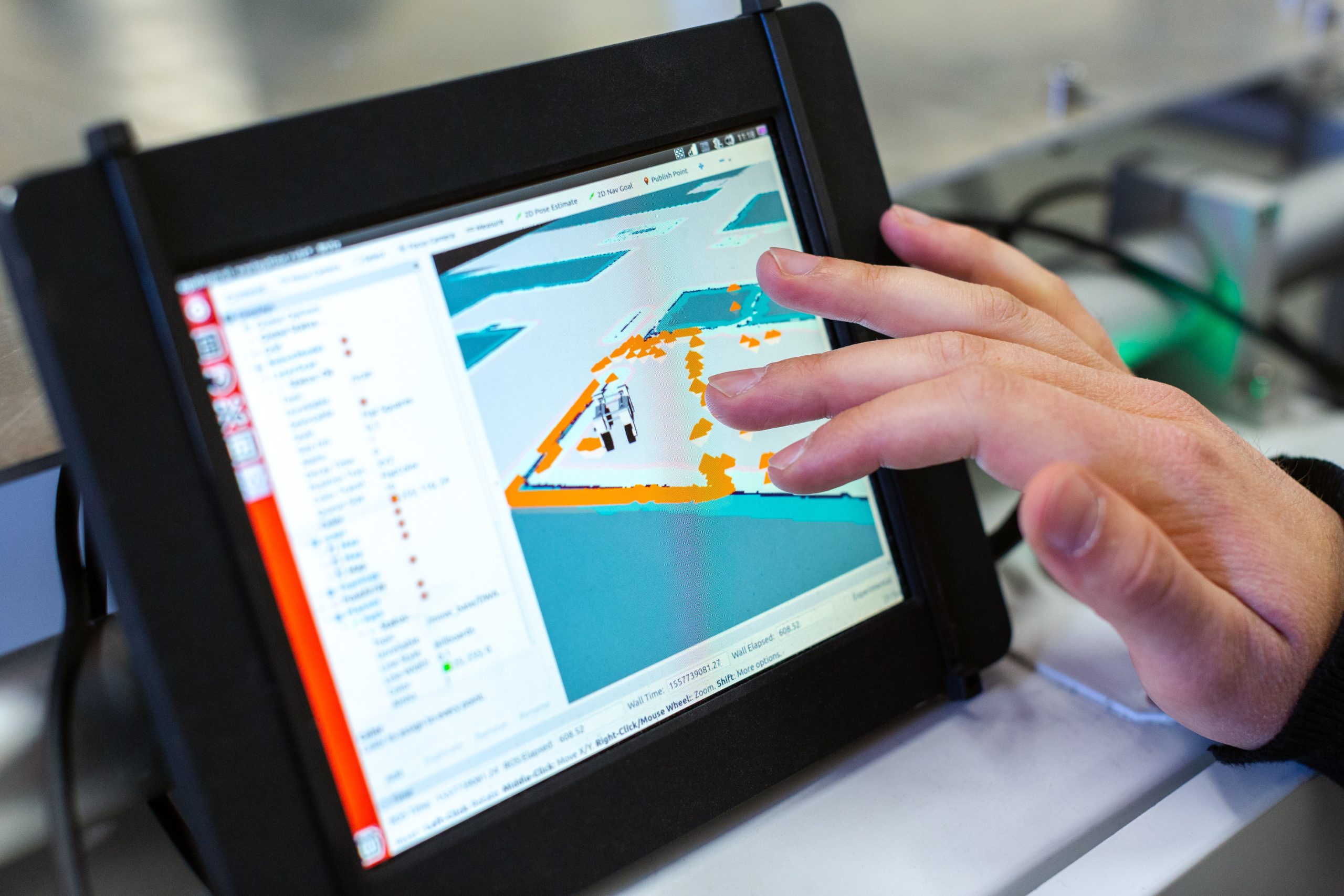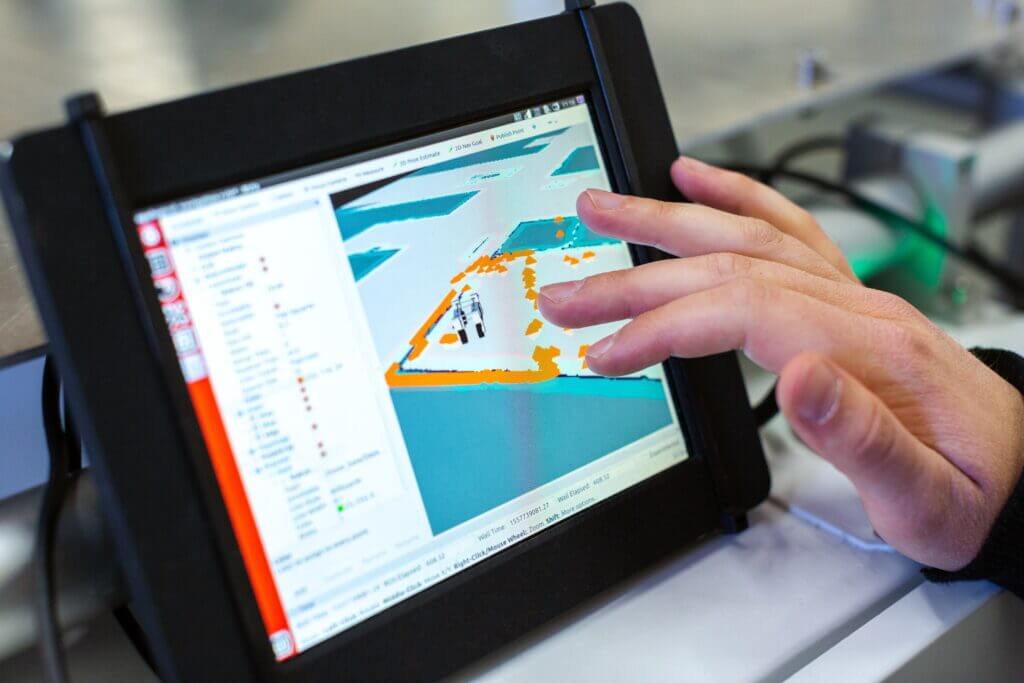
Retail Software Development Services: Transforming Your Business
Elevating Retail Operations Through Custom Software Solutions
In today’s fast-paced retail environment, technology has fundamentally changed consumer expectations and shopping behaviors. Modern customers demand seamless, efficient, and personalized shopping experiences across all channels. To meet these evolving demands, retail businesses need robust, custom software solutions that can streamline operations while enhancing customer engagement.
Retail software development goes far beyond basic coding. It encompasses comprehensive research, strategic design of data and process flows, detailed technical documentation, thorough debugging, and rigorous testing to ensure flawless functionality. At Multishoring, our retail software developers understand the unique challenges facing retail businesses and deliver solutions that drive tangible results.
Why Invest in Custom Retail Software Development?
Retail companies continuously seek to improve their operations and customer experience. With significant investments in technology, it’s crucial that your software development for retail partner truly understands the industry’s specific needs. Our retail software development services ensure your technology investments deliver maximum ROI by:
- Reducing operational costs through automation and streamlined processes
- Enhancing customer experience with personalized offerings and simplified checkout
- Improving inventory management with real-time tracking and analytics
- Centralizing data for better decision-making across all sales channels
- Boosting public perception of your brand as innovative and customer-focused
Comprehensive Retail Software Solutions
As a leading retail software development company, we specialize in creating tailored solutions that address specific business challenges:
- Advanced POS systems that empower store employees and speed up transactions
- Inventory management platforms providing real-time visibility across locations
- Supply chain optimization tools that reduce costs and improve efficiency
- E-commerce platforms that seamlessly integrate with physical store operations
- Customer loyalty programs that drive repeat business through personalization
- Self-checkout systems that reduce wait times and improve shopping experiences
Why Choose Multishoring to Build Retail Software?
Our team of experienced retail software developers combines deep industry knowledge with technical expertise to deliver solutions that truly transform retail operations. We understand that retail is one of the most competitive industries, with constantly changing customer habits demanding continual business adaptation.
When you partner with Multishoring for your retail software development needs, you gain access to experts who can help you create exceptional shopping experiences that build lasting customer loyalty. Our solutions adapt to your business’s evolving needs while incorporating emerging technologies like artificial intelligence and machine learning.
Ready to elevate your retail business with custom software solutions? Contact us today to discuss how our retail software development services can help you stay ahead in the competitive retail landscape.
Comprehensive Retail Software Development Solutions
In today’s competitive retail landscape, custom software development for retail has become essential for businesses looking to gain a competitive edge. At Multishoring, we understand that effective retail software solutions must address multiple aspects of your business operations while providing exceptional customer experiences.
Tailored Retail Software Development Services for Your Business Needs
Modern consumers are increasingly demanding and tech-savvy. As technology continues to revolutionize how customers discover, compare, and purchase products, retail businesses must adapt quickly to evolving shopping habits and customer expectations. Our retail software development services are designed to help you overcome key industry challenges:
- Enhanced Security: We develop robust security strategies to protect your valuable customer data and business information from digital threats
- Inventory Management: Our solutions provide real-time inventory tracking across all sales channels
- Revenue Optimization: Advanced analytics help you increase profits by understanding and responding to customer behavior patterns
- Personalization: Deliver targeted discounts and offers that resonate with individual customers
- Streamlined Checkout: Implement efficient self-checkout systems that reduce wait times and improve customer satisfaction
- Superior User Experience: Build extensive customer engagement through enhanced UX/UI design that makes shopping intuitive and enjoyable

Innovative Retail Software Solutions to Drive Growth and Efficiency
The retail software landscape offers numerous options, but finding the right solution for your specific business needs is crucial. As a specialized retail software development company, Multishoring helps you navigate these choices and develop custom solutions that align perfectly with your business goals.
While many businesses consider commercial off-the-shelf solutions like iQmetrix, Dynamic RMS, LS Nav, Springboard Retail, Retail Pro, Chain Drive, or NetSuite RMS, these platforms often lack the flexibility and customization that growing retail businesses require. Our retail software developers create bespoke solutions that offer:
- Centralized Database Management: Control all sales channels from a single headquarters
- Operational Efficiency: Streamline processes to increase productivity and maximize resource utilization
- Real-time Inventory Monitoring: Gain immediate visibility across all locations and platforms
- Comprehensive Reporting: Access actionable insights through customized reporting tools
- Omnichannel Integration: Unify physical and digital shopping experiences for seamless customer journeys
- Customer Relationship Management: Collect and analyze customer data to design targeted offers that build loyalty
When you build retail software with Multishoring, you’re not just getting a technical solution – you’re gaining a strategic partner committed to your retail business success. Our team’s deep understanding of retail operations ensures that every feature we develop directly contributes to your competitive advantage in the marketplace.
Why Custom Software is Essential for Modern Retailers
In today’s digital age, implementing retail software development solutions helps businesses launch and scale their operations more efficiently. One of the primary advantages is enabling 24/7 sales without the overhead of a physical store, significantly reducing operational costs.
For existing online businesses, custom software development for retail elevates your brand to the same professional level as larger competitors, enhancing public perception of your company. Beyond these immediate benefits, working with a retail software development company provides valuable insights to:
- Understand your evolving target audience and adapt to changing consumer needs
- Identify improvement opportunities when performance metrics decline
- Enhance your ROI through data-driven decision making
- Accelerate business growth with scalable technology solutions
- Automate store operations including inventory auditing, pricing regulation, billing, reporting, payroll management, and refund processing
Consider this perspective: In the competitive retail landscape, operating without custom software is like being on a football team where no one passes you the ball—you become invisible and irrelevant. With 75% of virtual stores being retail businesses, implementing the right software development for retail ensures you secure a significant position in the competitive market and stand out from rivals. This visibility helps potential customers view your products as reliable solutions to their needs.
Custom-Built Retail Software Solutions to Streamline Operations
When you partner with experienced retail software developers, you gain access to specialized solutions tailored to your specific retail segment, whether you operate supermarkets, clothing stores, or other retail businesses. Our retail software development services cover several essential categories:
Scalable Payment Processing Software for Seamless Transactions
These retail solutions integrate store systems with banking payment infrastructure, offering:
- Secure online credit card processing
- Customizable invoice generation
- Reliable payment record storage
- Comprehensive transaction tracking with status updates
- Automated bank reconciliation
Omnichannel Retail Platforms to Unify Sales Channels
These powerful solutions synchronize online and offline purchases, tracking activity across websites, mobile apps, and physical stores. This popular approach to retail software development delivers wide-ranging commerce capabilities including product and order management, responsive customer support, and personalized content delivery.
Intelligent Inventory Management Software for Real-Time Insights
Advanced inventory control systems automate critical processes including:
- Real-time synchronization between stock levels and incoming orders
- Data-driven insights for procurement planning
- Quality control measures that prevent delivery of defective merchandise
- Integrated management with barcode scanning, RFID technology, and advanced tracking solutions
Retail ERP Systems to Centralize Business Operations
These comprehensive systems include customer management modules that collect valuable user data—such as demographics and purchase history—to enhance marketing strategies. The product management features can categorize merchandise according to various criteria, while the customizable nature of these solutions allows retailers to integrate with third-party systems and develop specialized modules based on specific business requirements.
Point of Sale (POS) Software Built for Modern Retailers
Modern POS solutions extend far beyond basic product scanning and pricing. When you build retail software with Multishoring, your POS system can process refunds, handle exchanges, and incorporate additional retail business tools including inventory management, customer relationship management, detailed reporting, and specialized features like appointment scheduling.
Retail Software Development FAQs
What is ERP in Retail?
Enterprise Resource Planning (ERP) is comprehensive management software that oversees all aspects of your retail business—from manufacturing and accounting to delivery, inventory, advertising, and more. As a retail software development solution, ERP offers retailers an optimized way to manage their operations. While many ERP functions overlap with POS systems, the most effective approach is often combining them to create a high-performing retail management ecosystem.
Although ERP implementation traditionally requires significant time and resources—leading to perceptions of being expensive, inflexible, and complex—these systems are becoming increasingly popular among small and medium-sized retail businesses. The reason? Retail software developers can create ERP solutions that save both time and money by integrating critical business operations.
Key advantages of implementing retail ERP software in your business infrastructure include:
- Enhanced inventory management – ERP software maintains detailed information about every product in stock, with automatic updates that keep both you and your customers informed about product availability and restocking needs
- Real-time sales recording – ERP systems with integrated POS capabilities accelerate financial transactions and reduce customer wait times. This integration provides immediate insights into inventory levels, revenue, and pending transactions
- Centralized business intelligence – Retail software development services that include ERP functionality can consolidate all critical data within a single integrated application
- Streamlined pricing and discount management – ERPs efficiently track product pricing and promotional discounts, making the entire process more straightforward and less error-prone
Which Systems Should Integrate with Your Retail Management Software?
In today’s competitive retail environment, standing out from competitors requires implementing advanced features in your retail software development project. When you build retail software with Multishoring, we recommend incorporating these critical elements:
- Universal Product Code (UPC) systems – These identification systems utilize specific barcodes and numbering sequences to track your products efficiently
- Real-time customer service solutions – Create exceptional shopping experiences by providing immediate online support that resolves customer questions instantly, dramatically increasing engagement
- Diverse payment options – By integrating various online payment methods, seller account providers, and payment gateways, you enable customers to complete purchases the moment they decide—boosting conversions and increasing revenue
- Advanced shopping cart functionality – Though common, this essential feature prevents customers from losing track of items they intend to purchase. A well-designed cart increases conversion rates and helps you analyze completed versus abandoned transactions
- Seamless third-party integrations – An efficient information system tailored to your retail store’s specific needs helps manage multiple tasks—including email marketing, payment processing, accounting, and order fulfillment—all from a single unified platform
At Multishoring, our team of experienced retail software developers works closely with you to understand your unique business requirements and create custom solutions that give you a competitive edge. Our retail software development company specializes in building systems that integrate seamlessly with your existing infrastructure while providing the flexibility to adapt to future retail trends and technologies.










